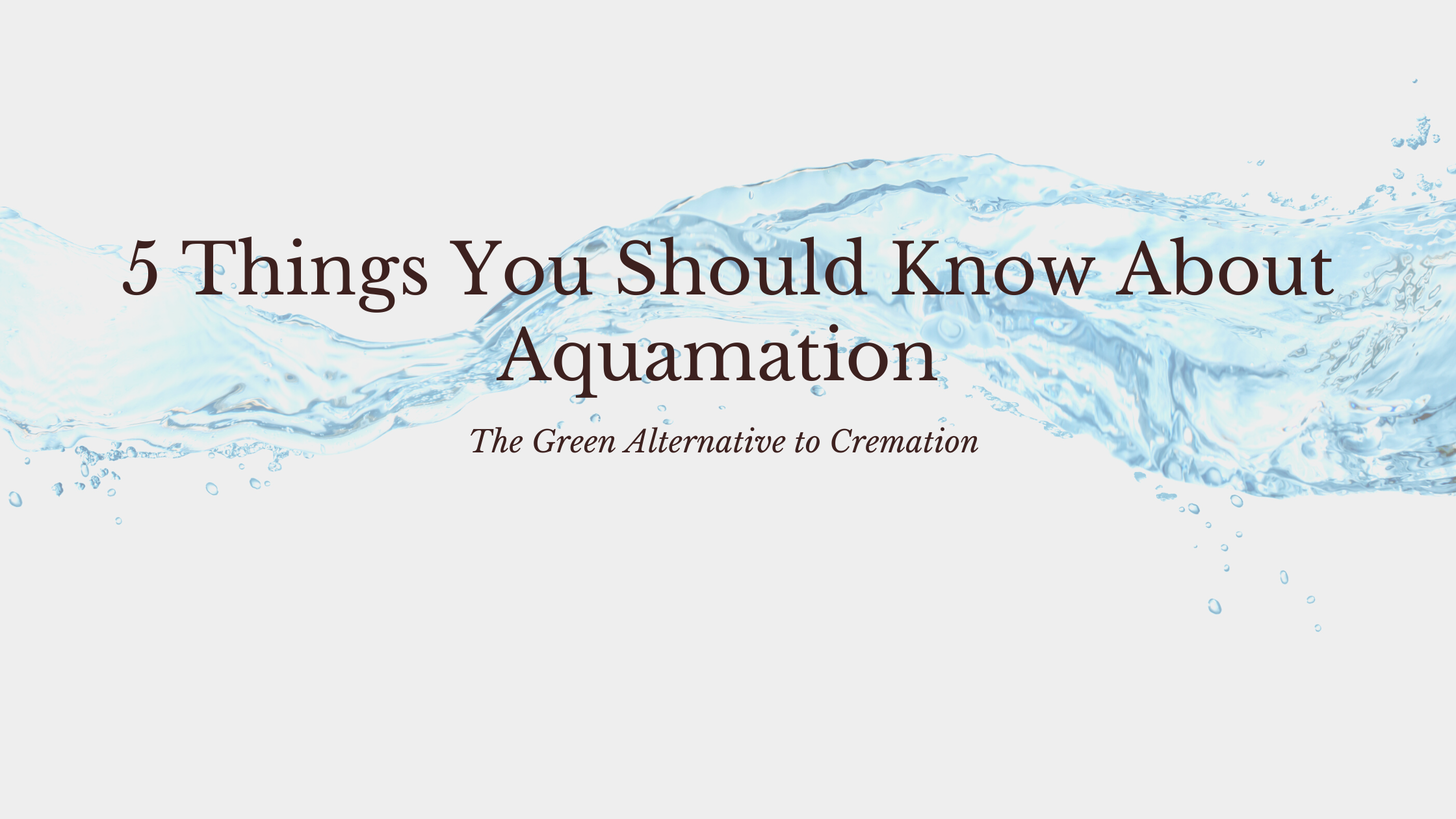Posted by Marta Turnbull on 1/6/2022 to
Green Funerals
If you're looking for an environmentally friendly funeral or a green alternative to traditional fire cremation and burial, Auqamation (also known as Water Cremation or Frameless Cremation) is an option growing in popularity. 

1. What is Aquamation?
Aquamation is an alternative to traditional burial and cremation. It is a water-based process whose scientific name is "alkaline hydrolysis", in which a "combination of gentle water flow, temperature, and alkalinity is used to accelerate the breakdown of organic materials" when a body is laid to rest in soil, according to Bio-Response Solutions, a US company which specializes in the process.
2. Why is Aquamation considered a good option for a green funeral?
With Aquamation, there are no direct emissions of harmful greenhouse gases or mercury to the atmosphere. This process does not burn any fossil fuels. It is very energy efficient – greater than 90% energy savings compared to flame cremation, with 1/10th of the carbon footprint.
3. How much does Aquamation cost?
The cost of Aquamation varies greatly by area and provider. It is comparable in price to flame cremation and it is significantly less costly than burial.
4. Is Aquamation approved in my state?
Aquamation for Pets is approved everywhere in the United States. As of 2021, Aquamation for Humans is approved in the following 21 states: Alabama, California, Colorado, Connecticut, Florida, Georgia, Idaho, Illinois, Kansas, Maine, Maryland, Minnesota, Missouri, Nevada, North Carolina, Oregon, Tennessee, Utah, Vermont, Washington, and Wyoming.
5. Will I still need an urn after Aquamation?
Yes, "The process results in approximately 32% more cremated remains than flame-based cremation and may require a larger urn," according to the Cremation Association of North America (CANA), an international non-profit organization that Stardust Memorial is a member of. We recommend choosing an Extra Large or Urn for 2 to hold the additional capacity.
Did you know...
Desmond Tutu, who was a South African Anglican bishop and Noble Peace Price winner, known for his work as an anti-apartheid and human rights activist, chose Aquamation because it was an eco-friendly alternative to cremation, reported CNN.

 (888) 872-0228
(888) 872-0228
 Caring Help
Caring Help
 Sign In
Sign In
 Cart
Cart 
